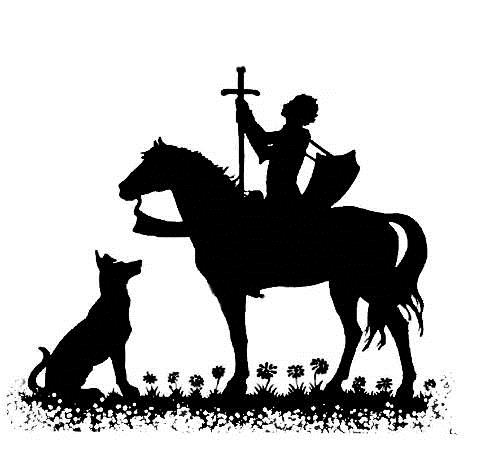
Beatrice Hankey gathered a group of young women together as disciples of Christ. They met together to study and learn the bible, and went out to serve people, undertaking special missions to give help in response to particular needs. Within the group, members found (and still find) fellowship, friendship and acceptance. There were (and are) no codified rules, no formal status and no fixed and limited objectives that members had to achieve. The simple call is, ‘By love, serve’.
A medieval Bible translation gives ‘disciples’ as ‘learning knights’; put this together with Tennyson’s ‘Idylls of the King’ (widely read at the time) and there was a model for the Fellowship’s activities – meetings became ‘Camelots’ and ventures of service became ‘quests’; the Round Table of the Arthurian court enabled barriers of class to be overcome and, inspired first by the room names at a Retreat House, and then by the Spirit, members were given new names as a sign of belonging to the Knighthood Family. Beatrice Hankey became Pilgrim Help. These new names were, and remain, both a challenge and a direction to members of the Fellowship.
The Fellowship has always been led by women. As well as meeting together at Camelots there are smaller meetings held wherever there are enough Knights to make a Company. At present we have 4 active Companies – Eastern, Midlands, Thames and Wessex. There is a Continental company, now small in number but praying about the future and we are now reestablishing links with the Corrymeela Community.
The Fellowship has never been a large movement. It has never gained wide publicity, and does not advertise. Help said it has been ‘I have gathered them one by one and then, when ready He sends us to tell others.’ It grows as friends come to see and experience ‘Knighthood’. Those who wish to join are received into the Fellowship regardless of their Christian denominational background or spiritual standing. As a family as much as a fellowship we have found it possible to keep unity in diversity without breaking the bond of fellowship.
.